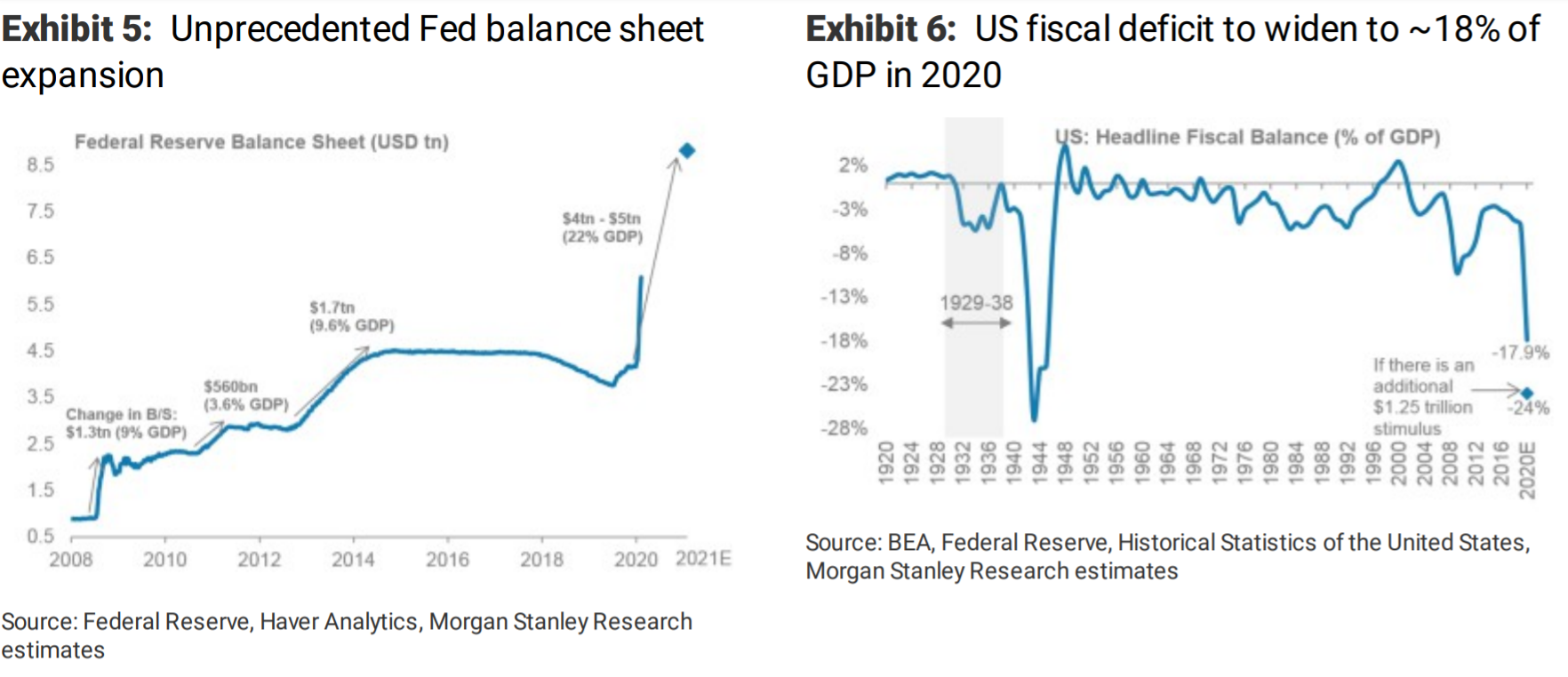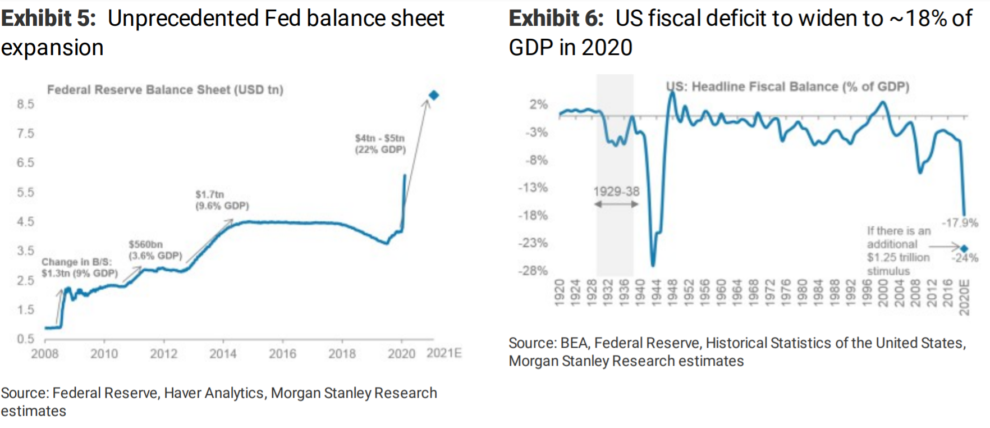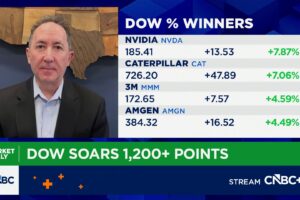Though no meme has immediately emerged — unlike the now-infamous Jim Cramer television shot showing a jump in stocks and a spike in jobless claims — Tuesday’s session carried another contradictory message.
The S&P 500 SPX, +3.05% surged over 3% for its third gain in four days, while the International Monetary Fund warned of the worst downturn since the Great Depression.
Morgan Stanley’s strategy team acknowledges the current downturn will be worse than the global financial crisis. But, say analysts Andrew Sheets, Serena Tang and Naomi Poole in a new research note published on Wednesday, output will recover twice as fast due to the unprecedented monetary and fiscal response, and also because the consumer and financial system was less leveraged heading into the downturn.

“Markets lead the economy,” they say. “If a deep plunge in activity will mean the second quarter of 2020 marks the lows for activity, we think it’s very reasonable that the low for equity/credit prices happens before that. While anything could happen, that’s been true more often than not.”
That said, credit and equity valuations were unusually expensive going into this recession so they don’t expects stocks to revisit the highs, or credit spreads to be as tight, anytime soon. They do think the valuation story now in credit is better and they also recommend selling volatility.
Their biggest worry this year is a rush to reopen the economies. “In some ways, asking for social distancing in February and March was ‘easy;’ the virus was new and scary, it was expanding rapidly and the weather in the Northern Hemisphere was (generally) poor,” they say. “Asking people to preserve those gains via social distancing in May when new cases are declining, economic pain is mounting and the weather is better will be a harder challenge.”
Their biggest worry for 2021 are calls for austerity, as happened after the financial crisis.
The buzz
With total confirmed COVID-19 cases on the precipice of the 2 million mark, data continues to point to slowing growth. New-virus cases worldwide grew 3.1%, including 4.4% growth in the U.S., according to data compiled by Deutsche Bank. The worldwide growth rate was 6.1% and the U.S. growth rate was 7.6% five days ago.
President Donald Trump said he is directing his administration to halt U.S. funding of the World Health Organization.
Deaths have surged in Sweden, which has kept schools and restaurants open, while Denmark begins to reopen its schools.
The biggest airlines in the U.S. have tentatively agreed to terms for $25 billion in government aid.
The International Energy Agency forecasts global oil demand will fall by a record amount this year, falling to levels last seen in 1995.
Bank of America BAC, -0.79% reported a worse-than-expected decline in profit though revenue exceeded expectations.
U.S. retail sales for March will headline what is expected to be a grim set of economic reports, which also will include industrial production and the Federal Reserve Board’s Beige Book of economic anecdotes.
The markets
Looking risk-off for the moment. U.S. stock futures ES00, -1.72% YM00, -1.53% NQ00, -1.03% slumped.
Crude-oil CL.1, -2.03% and gold GC00, -1.00% futures fell, while the dollar DXY, +0.63% rose.
The yield on the 10-year Treasury TMUBMUSD10Y, 0.684% fell 6 basis points.
Random reads
The new season of the popular videogame Fortnite has been delayed.
The world’s longest animal has been discovered.
There is a social media campaign to buy stamps, on the belief it will save the U.S. Postal Service.
Need to Know starts early and is updated until the opening bell, but sign up here to get it delivered once to your email box. Be sure to check the Need to Know item. The emailed version will be sent out at about 7:30 a.m. Eastern.











